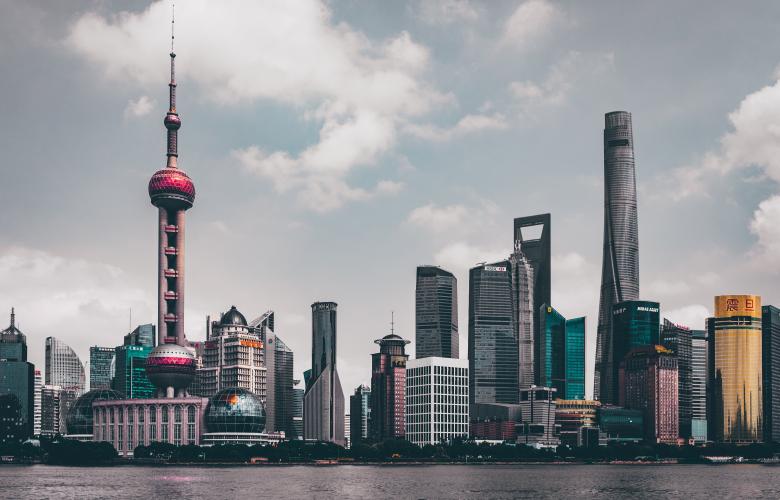Southeast Asian cities dominate as top investment destinations in JLL report.
Contact
Southeast Asian cities dominate as top investment destinations in JLL report.
Jeremy Kelly, Global Research Director for JLL, discusses the Decoding City Performance Report and the key to successful investing.
As investors continue to look for safe-haven destinations when allocating assets, factors such as innovation, talent, resilience, infrastructure, governance and transparency are becoming increasingly important. And, some of the world’s most established cities are benefitting. According to Jeremy Kelly, JLL's Director for Global Research, “investors are increasingly focusing on whether a city is future-proofed in order to retain the long-term value of their assets.” Established World Cities have common traits, including: a strong corporate presence; a market size that supports diverse opportunities for companies and people; sophisticated knowledge and innovation platforms; an attractive global brand and identity; as well as gateway functions for investment, trade and tourism.
The Make and Break
JLL’s recent Decoding City Performance report classes seven Established World Cities – London, New York, Paris, Tokyo, Singapore, Hong Kong and Seoul, a new entrant this year. From the seven, London, New York, Paris and Tokyo are all top real estate investment destinations, featuring in the top 30 for Investment Intensity – a measure that compares the volume of direct commercial real estate investments in a city over a three-year period, relative to the city's current economic size. As Kelly suggests, investor appetite remains robust for assets in the world’s most globalised metropolitan economies.
In addition to those cities, Los Angeles, Shanghai and Boston showcase the highest real estate investments between 2014 and 2017. While Hong Kong, Singapore and Seoul sit just outside the top seven real estate investment destinations. “Hong Kong and Singapore were regularly among the top seven investment markets over the 2008-2012 period but have fallen out more recently due to either cooling measures or weak market fundamentals,” explains Kelly. “By contrast, Los Angeles is having a good run in terms of investment, while Shanghai is benefitting from high levels of domestic liquidity.” Another key concern for investors, according to JLL, is the issue of transparency. “Of the ‘Big Seven,’ Seoul has relatively low levels of transparency, which is hindering its prospects for moving into the top seven for real estate investment,” he says. Seoul's close proximity to the Demilitarized Zone and North Korea also means it has been heavily impacted by ongoing tensions in the region.
While Los Angeles, Shanghai and Boston are among the world’s top real estate investment destinations, they lack some of the global gateway functions and infrastructure platforms required to make the step up to the top group. However, out of the three cities, Los Angeles and Shanghai are closest to joining the Big Seven, due to their scale, appeal, soft power and global specialisation. Prospects in Los Angeles have been further enhanced by a renewed focus on infrastructural improvements and the impetus provided from hosting the Summer Olympics in 2028.
As laid out in JLL's report Decoding City Performance, Kelly highlights ten key imperatives for any investor hoping to catch the next wave of winning cities. These include:
- Fostering Innovation Pathways – Cities with distinct innovation pathways such as tech start-ups and centres for corporate R&D create real estate investment opportunities.
- Uncovering Hidden Talent – Location decision-making by companies is driven by the availability of a diverse talent pool, which includes not just tertiary graduates but a mix of vocational and specialist skills.
- Investing in Infrastructure – A city’s infrastructure platform is increasingly regarded as a critical determinant of how well cities can participate in the global economy.
- Thinking Long-Term – Real estate investors and businesses are beginning to take into consideration cities which address environmental sustainability and resilience to future-proof their assets.
- Good City Governance – Real estate markets are impacted by long-term visions, coordinated planning and the ability of cities to act as stable partners. Evaluating the nuances of how cities are run will be crucial to identifying the next set of successful cities and real estate markets.
- Transparency – There is widening recognition among governments and urban planners of the crucial role that a transparent real estate sector plays in city competitiveness, not only as a facilitator of new investment and business activity, but also in community well-being and inclusiveness.
- Being Smart – City governments that are well-resourced establish coherent cross-cutting strategies and offer opportunities for smart building development.
- Affordability – Companies are constantly on the lookout to move their operations to cheaper locations to boost efficiencies and reduce costs.
- Brand Building – Reputation is key in attracting businesses, talent and visitors; and cities are using innovative real estate and impressive skylines to project their brands and identities.
- Going Global – Globalised cities attract more attention from international investors and businesses.
Click here to view the JLL Decoding City Performance Report
For more information or to discuss the report contact Jeremy Kelly JLL via the contact details below.
Similar to this:
JLL names Shanghai, Beijing, Guangzhou and Bangkok as Rising Giants of growth cities.










